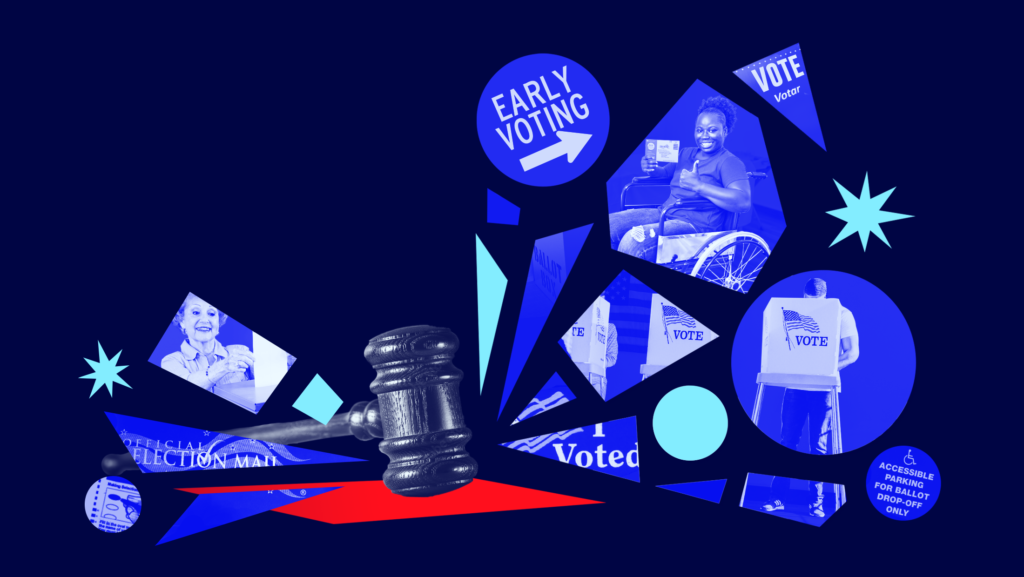What Is A Voter Suppression Law?
What are voter suppression laws? This article will examine voter suppression laws‘ impact on the disabled, sick, and people of color. It will also discuss the Unconstitutional coverage formula resulting from these restrictions. You can read the full article here.
Absentee voting restrictions in states with voter suppression laws
A recent Supreme Court ruling upheld the ban in Wisconsin on absentee ballot assistance and drop boxes. To prevent ballot harvesting, a conservative law firm sued the state over the law and won. The group argued that absentee voting is a constitutional right and should be protected by safeguards. It also argued that the voter must return absentee ballots. The state is appealing the decision, which could affect voting in the future.
In addition to the new law in Georgia, the state board of elections has the authority to remove election officials. The state board of elections is now empowered to remove elected officials who fail to follow state voting laws. In addition, Michigan and Wisconsin legislators have introduced bills to promote “election integrity” in their states. A total of 306 such bills have been introduced so far, and 89 percent have Republican sponsors.
One of the main reasons why voting is restricted in some states is the implementation of voter suppression laws. In Iowa, for instance, the early voting period was reduced by Republicans. In addition, county election officials prohibited absentee voting in this state unless they had received an absentee ballot request form from a registered voter. But these measures have not stopped Iowans from protesting the new laws.
Impact on people of color, disabled and sick
Voter suppression laws have been widely criticized for hurting people of color. But they have also severely impacted people with disabilities. Voting rights for people with disabilities are being severely curtailed, and advocacy groups like Disability Rights Texas have been working to address this issue. The Republican Party tries to cast these bills as election integrity measures, but these efforts put vulnerable voters at risk. They are making it more difficult to exercise their right to vote by making them less likely to do so.
The impact of voter suppression laws on the disabled, sick, and disabled has not been adequately researched. In Arizona, strict voting rules have resulted in more barriers to voting for people with disabilities. The Brennan Center for Justice reports that in 2021, 19 states will have adopted new voting restrictions. However, despite the findings, voter turnout has not decreased. A study from the University of Bologna found that voter ID laws had no significant impact on turnout.
In the US, voter suppression of minority voters has increased, particularly since a 2013 supreme court ruling that weakened the Voting Rights Act, the nation’s most important voting law. The northwest and Pacific northwest are excellent places to live if you want to have your voting rights respected. But the deep south is particularly repressive, with many states have passed voter suppression laws.
Unconstitutional coverage formula for these restrictions
In a recent decision, the Supreme Court struck down Section 4 of the Voting Rights Act, invalidating a key provision. Section 5 of the Voting Rights Act requires states with a history of discrimination to obtain federal approval before changing their election laws. As a result, in 2013, 13 states were no longer required to seek preclearance for electoral laws. But that doesn’t mean that states are free to do whatever they want regarding voting.
The court sided with voting rights advocates and ruled that the VRA’s coverage formula was unconstitutional. Congress enacted the VRA in 1965. Since then, Congress has enacted very little federal oversight of voting practices in the US. Despite the absence of this requirement, voting rights advocates say. Section 4b was the strongest measure of accountability the VRA had ever created. In addition, the new coverage formula was based on a rolling calendar and updated every 15 years.
The court could respond in one of three ways. First, Shelby County v. Holder struck down an integral part of the Voting Rights Act that required the preclearance of election rules with the Justice Department. This ruling recognized discrimination and led to voter suppression measures, which prompted Democratic legislators to introduce the John Lewis Voting Rights Advancement Act. The law would have established a new coverage formula and required states to obtain preclearance before making election changes.






